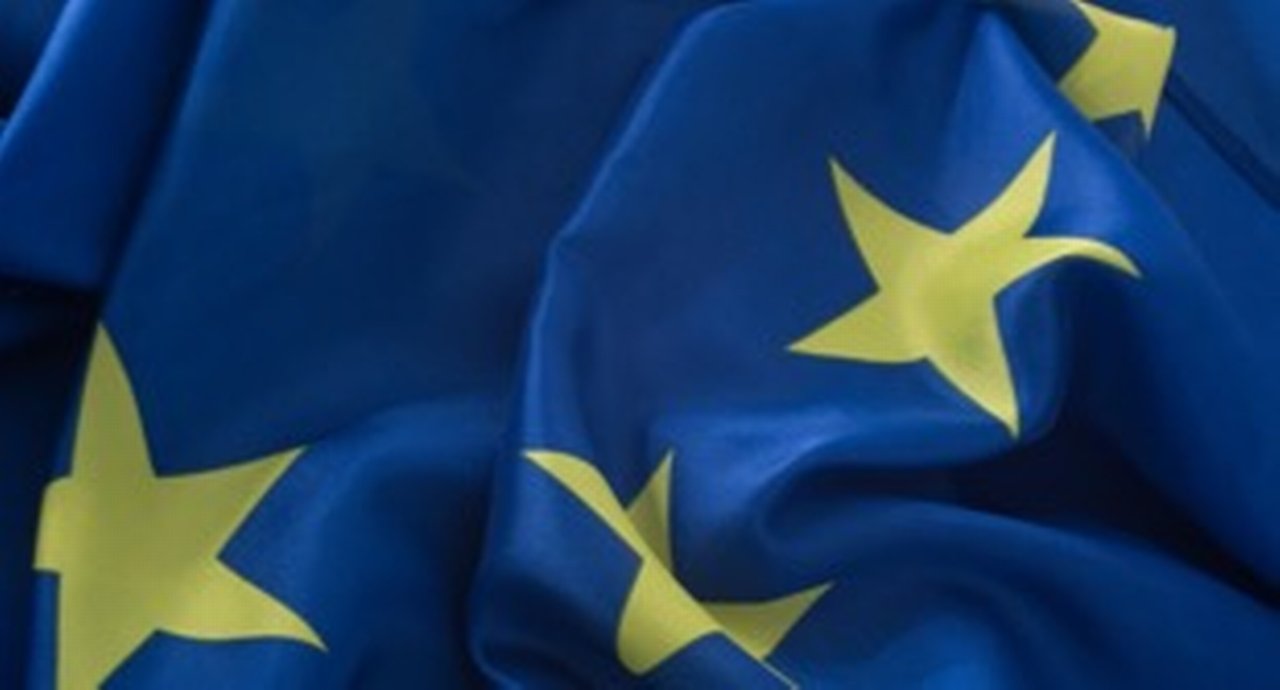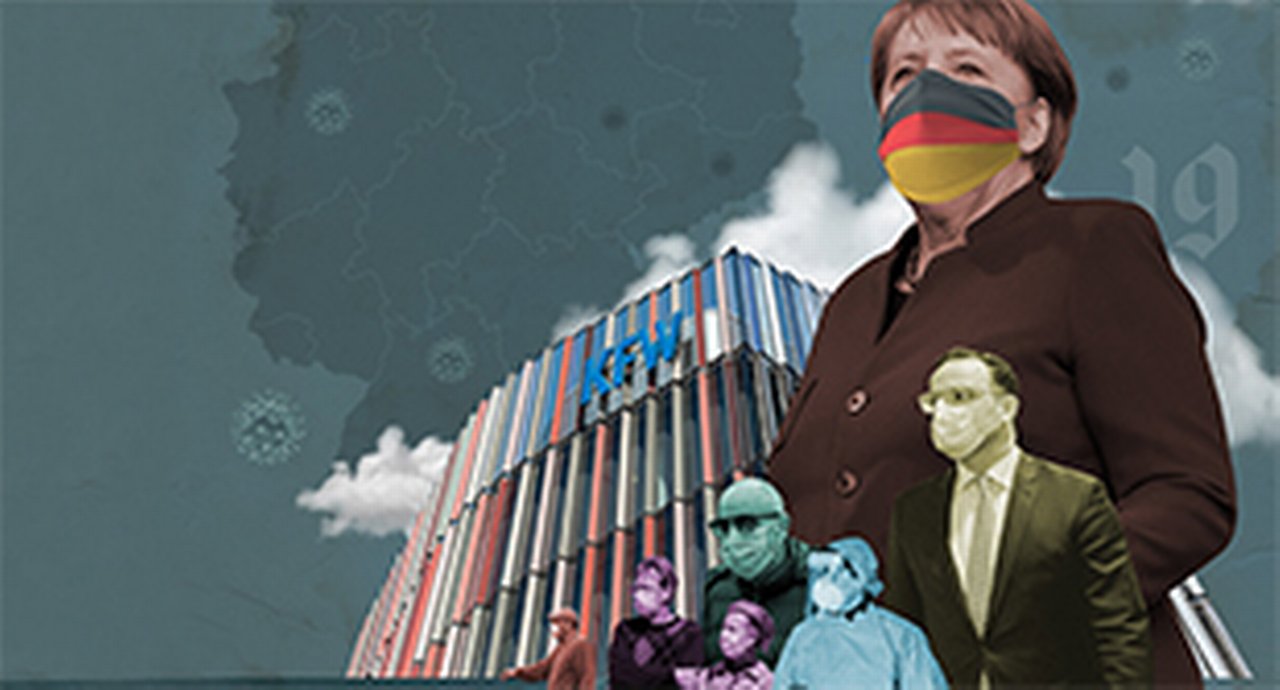1 October 2021
Germany’s Social Democratic Party (SPD) and its leader Olaf Scholz was the winner of last month’s federal election. Yet he is not yet confirmed as successor to outgoing Chancellor Angela Merkel, while the new government could comprise a three-party coalition with major ideological differences, reports flow’s Graham Buck
MINUTES min read
Germany’s outgoing Chancellor Angela Markel has won much respect worldwide for her 16-year tenure as other European politicians have come and gone, but as flow reported last April in “Germany’s elusive recovery”1 public confidence in both her party, the Christian Democratic Union (CDU) and its centre-right political ally the Christian Social Union (CSU) has been waning in recent months.
The outcome of the federal and state elections on 26 September was widely expected to be tight and so it proved. While the CDU/CSU alliance was credited with successfully steering Germany through the first wave of the Covid-19 pandemic – to the detriment of the CDU/CSU’s coalition partner the Social Democratic Party (SPD) – its management of the subsequent waves was regarded as less adept. Of late, commentary on Mrs Merkel’s achievements has been more critical. The Economist’s lead article of 25 September was titled “The mess Merkel leaves behind” to accompany a special report that detailed a lengthy ‘to do’ list for the next administration.2
“In her 16 years in the chancellery she has weathered a string of crises, from economic to pandemic. Her abilities as a consensus-forger have served her country and Europe well,” the newspaper conceded. “But her government has neglected too much, nationally and internationally. Germany has got away with it, for now; the country is prosperous and stable. Yet trouble is brewing. And as Mrs Merkel prepares to leave office… admiration for her steady leadership should be mixed with frustration at the complacency she has bred.”
In brief, the list of “neglected issues” include inadequate investment by the public sector in building infrastructure, particularly digital; the 2009 constitutional amendment making it illegal to run more than a minute deficit; failure to reform the pension system in the face of a fast-ageing population; and Germany’s sluggish progress on combating climate change, exacerbated by Mrs Merkel’s shutdown of its nuclear industry following Japan’s Fukushima disaster in 2011. Added to this, the newspaper views the outgoing Chancellor’s reluctance to wield Germany’s influence in Europe – for example in addressing the weakness of the EU’s indebted southern members – “has been especially disappointing”.
“In the coming years the consequences of the US-Chinese tensions, Brexit and the need to create a stronger EU demand a more proactive approach from the next government”
Reactive to proactive
Deutsche Bank’s Group Chief Economist, David Folkerts-Landau agrees that successive international crises since 2005 has “forced a rather reactive policy approach” from the Merkel government. In his 27 September Election Commentary on the result, he suggested “In the coming years the consequences of the US-Chinese tensions, Brexit and the need to create a stronger EU demand a more proactive approach from the next government.”
He continued, “This new role, which many international observers have been demanding Germany to accept for a long time, comes at a point when Germany’s economic position is threatened by adverse demographics, structural disruptions resulting from digitalisation and, most importantly, the daunting quest to reach climate neutrality during the next two decades.”
In his view, a proactive approach is “all the more important” because these challenges “also offer great opportunities. “The fact that Germany has turned challenges such as the rebuilding after World War II or reunification into tremendous success stories, makes me confident that this can be achieved again.”
However, Folkerts-Landau suggested that both achievements happened only “because politicians were smart enough to let the social market economy unfold its benefits. The challenge for the new government will hence be a dual one: defining Germany’s new international role and striking the right balance between the market economy and a strong and guiding state.”
The lucky loser?
Who will be tasked with taking on the challenge hasn’t yet been decided. The apparent election winner was the SPD and its leader Olaf Scholz, which secured a narrow victory with 25.7% of the vote against 24.1% for the CDU/CSU bloc. As Deutsche Bank’s Research Strategist Jim Reid noted in his Early Morning Reid post of 27 September, it was the first time since 2002 that the SPD won the popular vote and marked a big turnaround, having trailed in third place over the spring and summer but the worst-ever performance for the CDU/CSU, marking the lowest combined share of the vote for the two big parties in post-war Germany. It was also a record result for the Greens, whose 14.8% was up almost six percentage points on 2017 “and puts them in a key position when it comes to forming a majority in the new Bundestag,” although they lost ground over the election campaign’s final weeks.

Figure 1: The SPD wins the 2021 election
Source : Federal Returning Officer, preliminary results based on ARD/ZDF

Figure 2: New composition of the Bundestag
Source : Preliminary calculations based on ARD/ZDF
However, both Scholz and the CDU’s Armin Laschet are seeking to form a government and aim to build a governing majority through coalition negotiations with the Greens and the pro- free market Free Democratic Party (FDP) whose chairman Christian Lindner is keen for it to play a “kingmaker” role3 and has indicated a willingness to talk to the CDU/CSU, the SPD and even the Greens.
Reid believes that a left-wing coalition made up of the SPD, the Greens and the more radical party Die Linke won’t secure a majority, so the remaining main options (based on the respective part colours) “are for the FDP and the Greens to “either join the SPD in a “traffic light” coalition or instead join the CDU/CSU in a “Jamaica” coalition.”
In their 27 September Germany Blog: Scholz secures election victory – needs to win the FDP to become Chancellor by Deutsche Bank Research’s Frankfurt-based analyst team of Marion Muehlberger, Barbara Boettcher and Stefan Schneider note that Laschet might yet be the “lucky loser” if Scholz “fails to bring the Liberals on board” when attempting to build a coalition although “the facts that the CDU/CSU lost more than 8% of votes compared to 2017 and that Scholz is highly popular weaken Laschet’s claim to have the mandate to form a government“. The final outcome, they add, “will depend on the amount of concessions either the SPD or the CDU is willing to make to the junior partners”, although all parties are keen that the negotiating does not drag on as it did four years ago, when a coalition deal was reached only after months of wrangling.
Should talks nonetheless remain deadlocked after several months, the Federal President could dissolve the Bundestag and call a new election – although such a move is unprecedented and surveys suggest that it wouldn’t be well received by voters, the team note. “The 2017 experience indicates that [he] could again summon the major parties to remind them of their responsibility for the stability of the country.”
A waiting game
Whether the process takes only a couple of weeks or six months “any shifting policy stances will only become visible once the coalition agreement is finalised and approved by party member ballots”, says the Frankfurt team and it could be early 2022 before the new German government is up and running, although for fiscal policy, the preliminary budget for 2022 will be in place until a new budget is signed into law. “Pending European policy debates – including the reform of the stability and growth pact – are likely to be postponed until the new German government is in place.”
“The next federal government is likely to consist of at least three parties and will have enormous ideological differences”
A Deutsche Bank presentation via Zoom on 27 September – given by Sven Afhueppe, Global Head of Political Affairs at Deutsche Bank and former Editor- in- Chief of German daily Handelsblatt and Johannes Pockrandt, Co-Head of Government & Regulatory Advocacy – noted that the Bundestag is due to reconvene within 30 days of the election; i.e. by 26 October, but whether the model is traffic light or Jamaica “the next federal government is likely to consist of at least three parties and will have enormous ideological differences,” said Afhueppe. Consequently, it is not fanciful to suppose that Chancellor Merkel might still be in office this Christmas.
He added that this would not be good news for the rest of the EU, which is keen for the new German government to be in place so the bloc can progress with decisions on issues such as combating climate change, a consistent global policy on taxation, reducing huge public debt loads around the world and digitalisation. The composition will also determine foreign policy and attitudes towards China and Russia, added Pockrandt, recalling that two years ago the FDP’s Lindner upset Chinese leaders4 by visiting pro-democracy leaders in Hong Kong, while the Green’s leader, Annalena Baerbock is a strong opponent of the Nord Stream 2 gas pipeline connecting Germany and Russia.5
Deutsche Bank Research reports referenced
Early Morning Reid by Jim Reid (27 September)
Election commentary by David Folkerts-Landau (27 September)
Germany Blog: Scholz secures election victory – needs to win the FDP to become Chancellor by Marion Muehlberger, Barbara Boettcher and Stefan Schneider (27 September)
Deutsche Bank update on German Federal Elections – Zoom presentation with Sven Afhueppe and Johannes Pockrandt (27 September)
Sources
1 See Germany’s elusive recovery at flow.db.com
2 See https://econ.st/3ikETY6 at economist.com
3 See https://bit.ly/3CUYhTw at dw.com
4 See https://bit.ly/3CRgRfc at taiwannews.com.tw
5 See https://bit.ly/3CYHMpo at cleanenergywire.org
Go to Corporate Bank EXPLORE MORE
Find out more about products and services
Go to Corporate Bank Go to Corporate BankStay up-to-date with
Sign-up flow newsbites
Choose your preferred banking topics and we will send you updated emails based on your selection
Sign-up Sign-upSubscribe Subscribe to our magazine
flow magazine is published annually and can be read online and delivered to your door in print
You might be interested in
MACRO AND MARKETS
Germany’s elusive recovery Germany’s elusive recovery
The persistence of the pandemic has delayed what promises to be a strong rebound in growth, while Chancellor Merkel’s departure casts uncertainty over the election in September and the country’s future role in the EU, reports flow's Graham Buck
MACRO AND MARKETS {icon-book}
All-in for Europe All-in for Europe
To achieve its economic potential, should Europe move away from its ‘taking part is everything’ stance and compete to win? Deutsche Bank’s Stefan Hoops considers who holds the chips
TRADE FINANCE, MACRO AND MARKETS {icon-book}
Germany’s lockdown lending Germany’s lockdown lending
flow talks to KfW’s Ingrid Hengster, who provides insights into the development bank’s partnership with the Germany government and commercial banking sector to support German businesses



